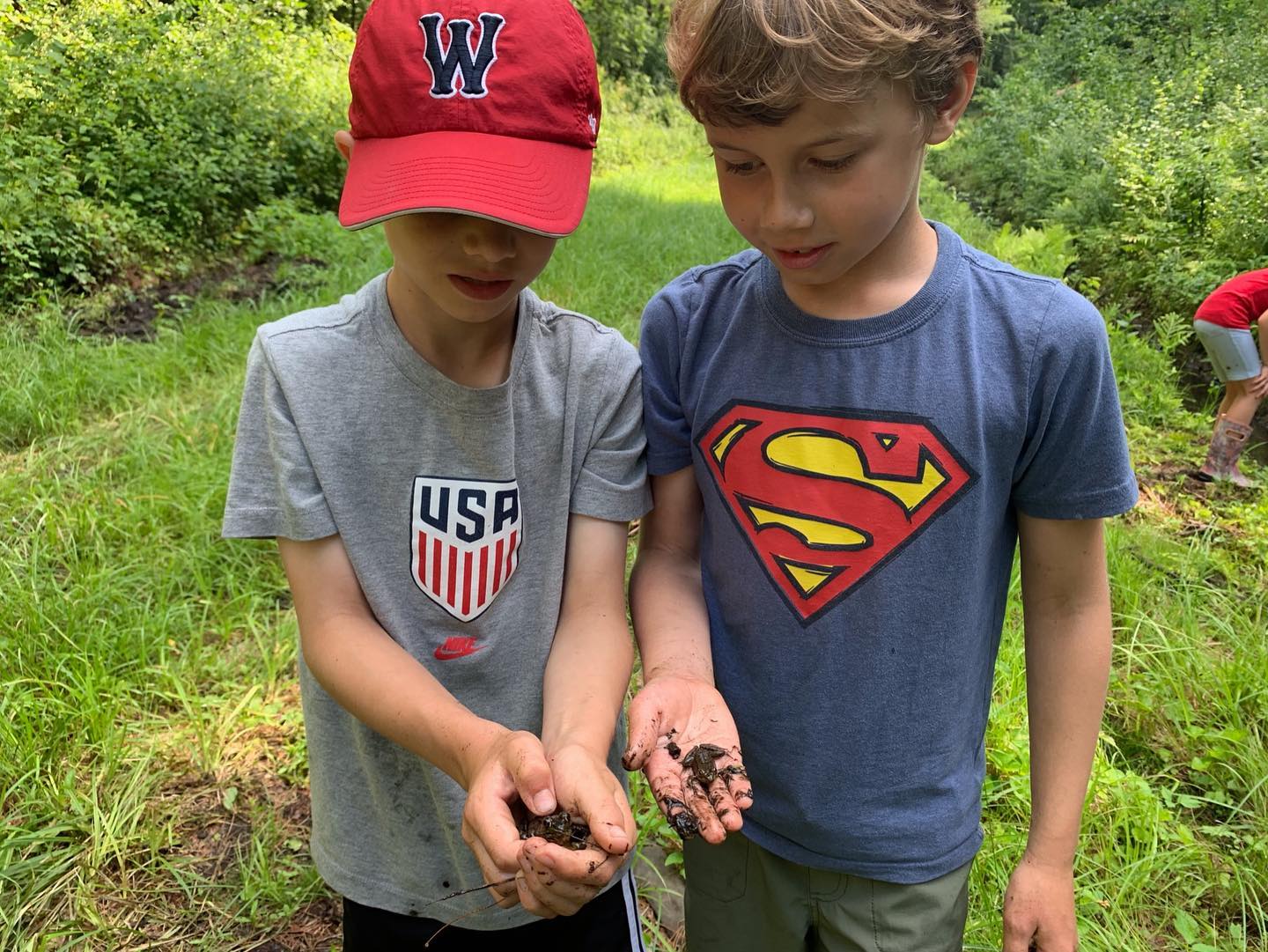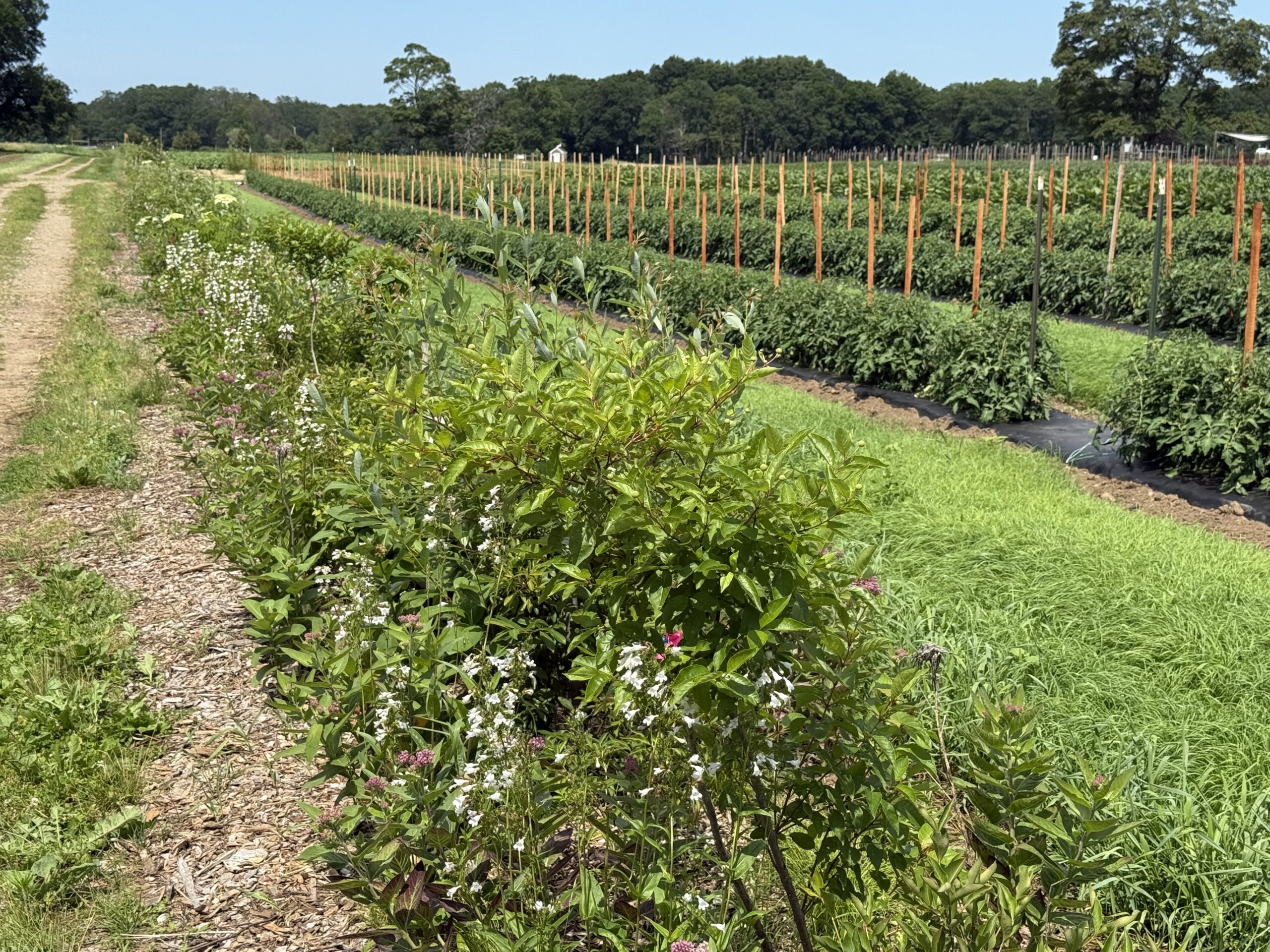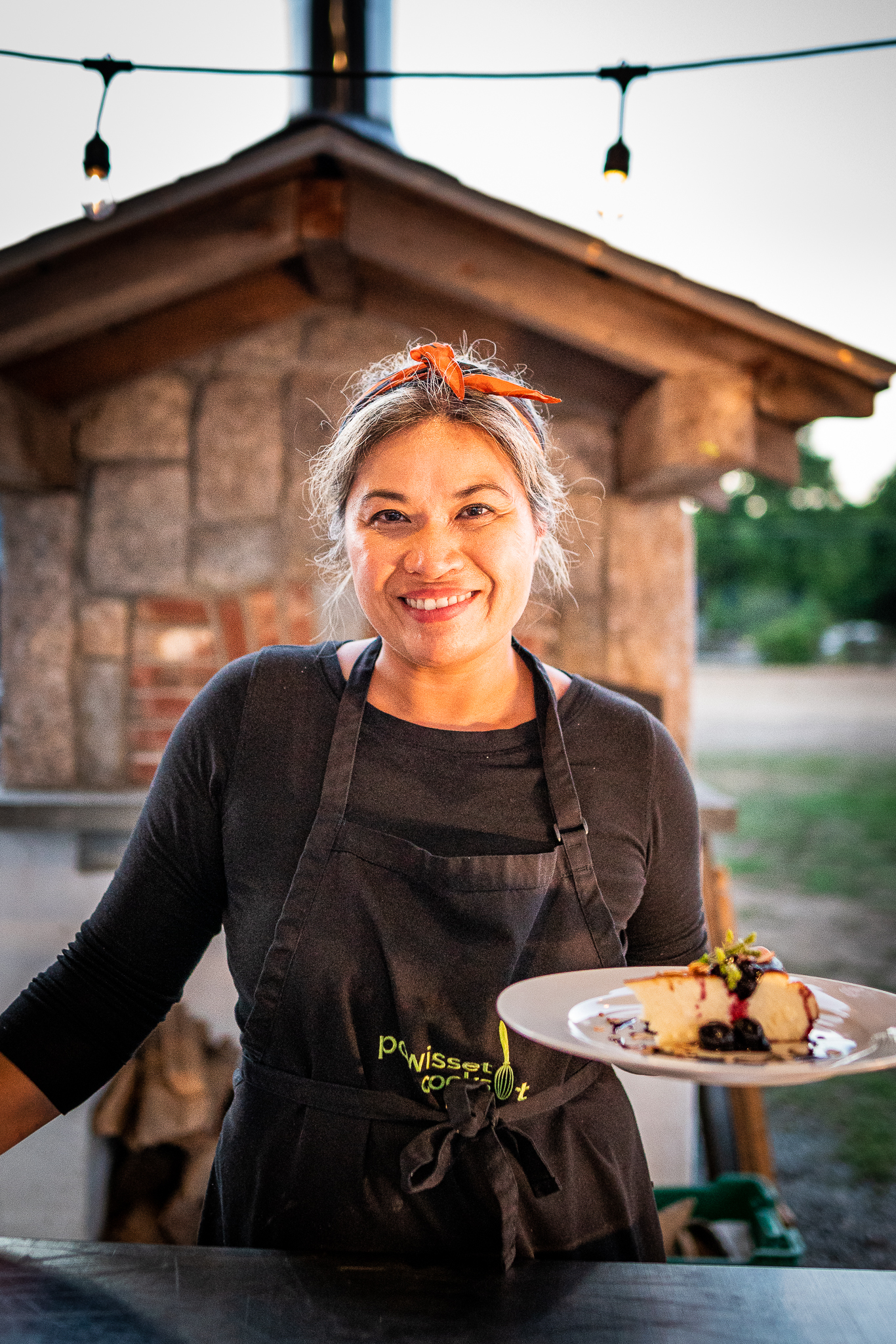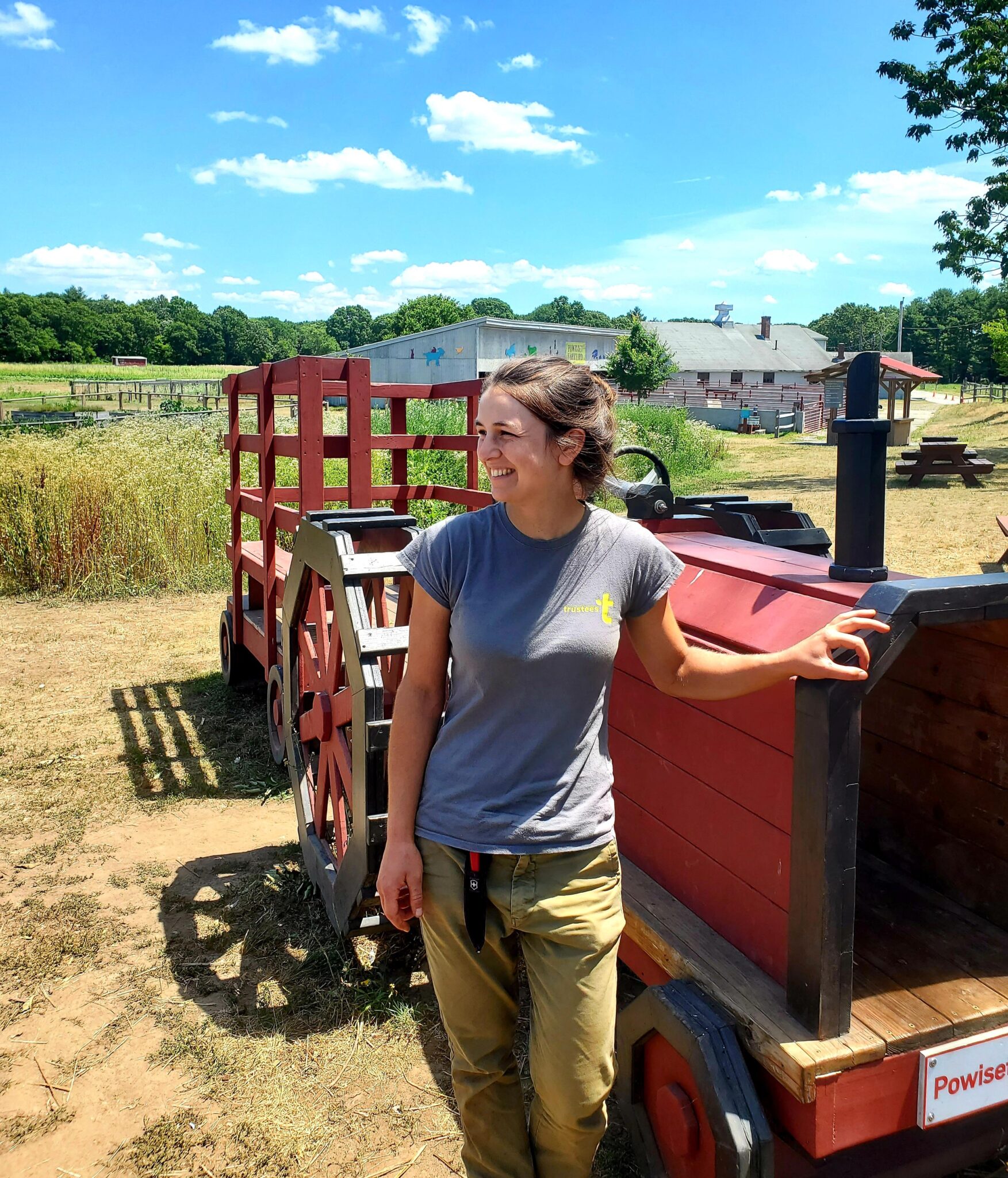
Editor’s Note: Although Chestnut Hill Farm Camp in Southborough is not running in 2024, we are excited to welcome campers to seven of our special places for this season.
This summer, camp was held at Chestnut Hill Farm in Southborough for the first time, led by the farm’s new Education Manager, Mary Hannah Cline, who brought a background of both farms and education to her new role. “We didn’t grow up on a farm, but farming was a part of my family. My great-grandfather was a dairy farmer, and one of my uncles was still on that same land. My cousins and I would bottle-feed calves and play in the hay loft at family reunions,” she says, adding, “My mom is the director of a preschool, so I’ve truly always been around early childhood education.”
Being in touch with and in awe of the life around her is something Mary Hannah encouraged at Chestnut Hill Farm this summer. “Children are new to the world, and everything is interesting to them. It’s so fascinating to them that there’s an ant on the table, or a butterfly just flew by, or there’s a dandelion in the grass, or that grasshoppers can jump that high,” she says. “I’m still able to tap into that childlike sense of natural wonder and love exploring right along with the kids. One day, I joined the campers while they were frog catching, and I got so excited about finding a salamander, I ran up to every kid to show them.”
The shared experience and joy between educator and camper is an important aspect of summer camps at The Trustees. As Mary Hannah notes, “Environmental education is less about leading the way and pointing, and more about walking alongside and discovering. The value in having the environmental knowledge is not in being a didactic narrator; rather, it is in being able to facilitate memorable interactions with the nature you encounter. Environmental education done well is about decentralizing the educator as the leader of the experience. The educator is a facilitator whose role is establishing safe parameters, offering invitations to learn more, and granting freedom to explore.”
Chestnut Hill Farm was a blank slate when Mary Hannah arrived from Colorado this spring. She credits her staff, who created activities for the campers using the farm and its land in unique ways for each of the 8 weeks of camp. “They used the wildflowers in the grass fields to make flower bouquets before a goat hike, recycled cardboard to create flower presses, made natural collages with petals, and pressed the flowers into clay for a ceramics project. The agriculture team have been great partners throughout the summer. The kids helped weed the CSA pick your own fields in a weekly weeding challenge and they picked Tomato Hornworms off the tomato plants.”
Mary Hannah adds that an emphasis on wild nature play is a signature of the Chestnut Hill camp experience. Tree climbing is an activity the campers experienced a lot of, one she says, “has many research-backed benefits for kids, such as emotional resiliency, problem-solving skills, gross and fine motor skill development, and motor planning.” Campers also spent a lot of time on “traditional farm-related crafts, such as making beeswax candles, butter, or wool felting. We also made melt-and-pour goat’s milk soap, raspberry jam, and did a lot of quick-pickling fresh vegetables and made our own jar labels.”
“I’ve been so pleased with how camp turned out in our pilot year,” she says. “We received wonderful feedback from parents. Many children reenrolled later in the summer after attending earlier, because their parents said they would not stop talking about their Chestnut Hill Farm Camp week! One boy kept adding enrollment weeks throughout the summer because he loved it so much, and he attended 5 out of 8 weeks. It was great hearing parents tell me ‘See you next summer!’ on their child’s last camp day.”
“See you next summer” is a frequent refrain at all of The Trustees’ nine summer day camps. Whether on one of our farms, along the coast, or at a museum, each camp is rooted in the unique aspects of the property’s history, characteristics, and programming. From catching salamanders to caring for barn animals, from fishing for crabs to discussing coastal erosion, and from nature journals to monumental art installations, each camp offers experiences that resonate with each camper. Smaller than many Massachusetts outdoor camps, we offer a personal and supportive experience for all campers.
Camp Directors at Appleton Farms, Crane Estate, deCordova Sculpture Park and Museum, The Farm Institute, Powisset Farm, Rocky Woods, Weir River Farm, and World’s End bring their own wonder and personal and professional experiences to their roles. They design summer experiences for ages 4+ through Counselor-in-Training (CIT) programs for teenagers that infuse the same sense of joy, curiosity, and connection to place that fired their passion for educating with and through the natural world. Campers who return year after year may eventually decide to become part of the leadership team they appreciated as a camper – and the cycle continues.
Find out more about our Summer Day Camps at Trustees properties around the state.



